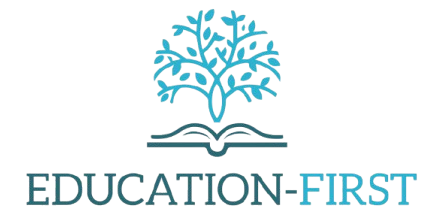Explain why you’re a perfect fit for the program. Here’s a step-by-step guide to help you craft an impactful and compelling personal statement:
Understand the Purpose of a Personal Statement
- The personal statement is your chance to demonstrate your motivation, passion, and readiness for university. It should provide insights into your personality, goals, and why you want to pursue a specific course or program.
Start with a Strong Opening
- Grab the reader’s attention: Start with an engaging sentence that makes the reader want to continue. This could be an anecdote, a personal story, or a thought-provoking statement related to your field of study.
- Be authentic: Avoid clichés and generic openings like “Ever since I was young…” Instead, share a real experience or insight that sparked your interest in the subject.
Explain Why You Are Interested in the Course
- Clearly explain why you want to study the specific course. Connect it to your personal experiences, interests, and long-term goals. Avoid vague reasons; be specific about what aspects of the course excite you (e.g., particular modules, teaching methods, or the career opportunities it offers).
- Reflect on any relevant experiences (e.g, volunteer work, internships, or personal projects) that inspired your choice. Show how these experiences have deepened your passion and knowledge of the subject.
Highlight Relevant Skills and Experiences
- Demonstrate your skills: Identify key skills (e.g., problem-solving, leadership, teamwork, communication) that are important for success in the program and provide specific examples of how you’ve developed them.
- Showcase your achievements: Discuss academic achievements, extracurricular activities, volunteer work, internships, or hobbies that have prepared you for university. Link these to the skills or qualities required for the course you’re applying for.
- Use concrete examples: Instead of listing achievements, provide details about what you’ve done and what you learned. For example, instead of saying, “I am good at leadership,” explain a specific situation where you demonstrated leadership and what the outcome was.
Demonstrate Personal Qualities
- Universities are looking for students who are not only academically capable but also well-rounded and mature. Showcase your personal qualities, such as motivation, curiosity, perseverance, and adaptability.
- Be reflective: Discuss how challenges or setbacks have shaped you, what you’ve learned from them, and how they’ve prepared you for university life.
Explain Your Long-Term Goals
- Link the course to your future: Describe how the degree will help you achieve your long-term career and personal goals. This shows the university that you have thought about how the course fits into your broader life plan.
- Make sure your goals are realistic and attainable, and demonstrate how you plan to make the most of the opportunity to study at the university.
Show Enthusiasm and Passion
- A personal statement should convey your enthusiasm and genuine interest in the subject matter. Be sure to show your passion without sounding overly emotional or exaggerated. Your excitement will help make your application stand out.
Conclude with Confidence
- End your personal statement on a positive, forward-looking note. You might want to briefly restate your commitment to the course or your excitement about the opportunity to join the university. Emphasize that you are prepared and excited for the challenges of higher education.
Use Clear, Concise, and Structured Language
- Organize your statement logically: Your personal statement should have a clear structure, with an introduction, body paragraphs, and a conclusion. Use paragraphs to separate different ideas (e.g., one for your interest in the course, one for relevant experiences, etc.).
- Avoid overly complex or flowery language; instead, focus on clarity and readability. Use active language and keep your sentences direct and focused.
Edit and Revise
- After writing your initial draft, take time to revise and improve it. Make sure your personal statement is well-written, free of grammatical errors, and flows logically.
- Get feedback: Ask teachers, mentors, or friends to read your personal statement and provide constructive feedback. They may spot areas for improvement that you missed.
- Check the word count: Personal statements often have a word or character limit. Ensure that you stay within this limit while still conveying all the necessary information.
Avoid Common Pitfalls
- Don’t repeat your CV: Your personal statement should provide deeper insights into your motivations, experiences, and goals, not just list your academic achievements.
- Avoid clichés: Phrases like “I’ve always wanted to be a doctor” or “I’m passionate about making a difference” are overused and don’t offer anything unique about you.
- Don’t overshare personal details: Keep the focus on your academic and professional development. Personal stories should be relevant and focused on how they’ve contributed to your growth.
Example Personal Statement Structure:
- Introduction: A compelling opening that introduces your interest in the course and why you chose it.
- Why this course?: A deeper exploration of what excites you about the subject and the program.
- Relevant experience and skills: Discuss your academic achievements, extracurricular activities, or work experience that demonstrate your skills and dedication.
- Personal qualities: Mention qualities such as perseverance, teamwork, or curiosity that will help you succeed in the program.
- Career aspirations: Explain how the course fits into your future goals and how you plan to use the education you receive.
- Conclusion: A confident conclusion that reiterates your excitement for the course and your readiness for university.
Final Thoughts:
An outstanding personal statement should be authentic, well-organized, and thoughtfully written. It’s an opportunity to showcase not only your qualifications but also your passion and drive. Take the time to reflect on your experiences, and make sure your statement presents you as the ideal candidate for the program.
If you would like a template for your personal statement, then:
Email us at info@education-first.co.uk



